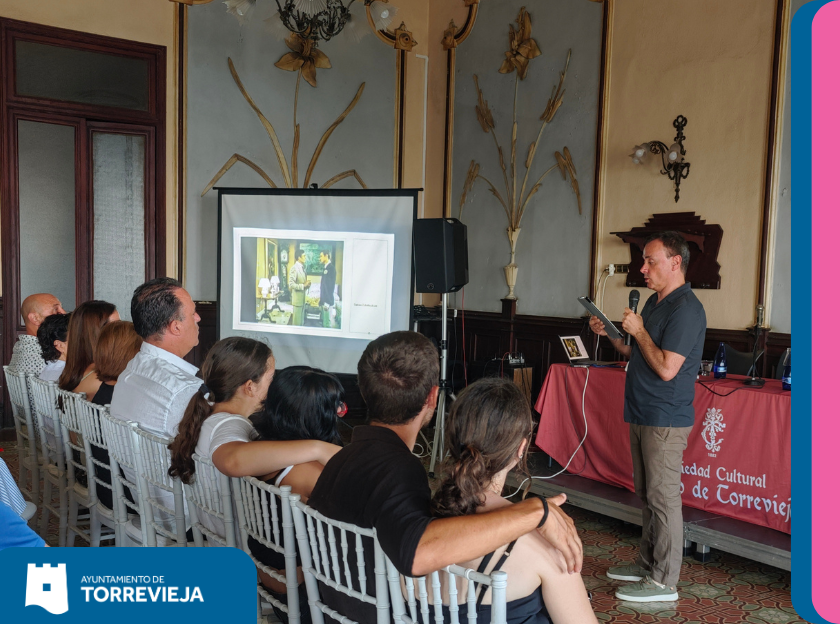The University of Alicante explores television history to showcase the evolution of the representation of LGBTQ+ people and raise awareness about diversity.

Jesús Segarra-Saavedra, director of the UA headquarters in Torrevieja, welcomed those in attendance and introduced the speaker, who is also a member of the Institute for Research in Gender Studies (IUIEG) and the Seminari d'Estudis Queer.
The talk, which explored the representation of non-normative sexualities in primarily Spanish television series, analyzed the tropes, trends, and most common archetypes, as well as the identity politics that underpin them. It recalled series such as La huella del crimen (1985–2010), which, according to historians, aired the first kiss between two gay men; Brigada Central (1989–1992), featuring the ambiguous character of Chief Inspector Manuel Flores, played by Imanol Arias, who was supervised by the General Directorate of State Security to avoid "possible scandals"; Al salir de clase (1997–2002), which for the first time signaled the acceptance of homosexuality by the other characters and depicted the first real kiss between a non-normative couple; the international series Melrose Place (1992–1999) and its flat character of Matt Fielding, played by actor Doug Savant, with no psychological depth and a seemingly imperceptible homosexuality; Farmacia de Guardia (1991-1995), which marked the appearance of the first gay teenager in a Spanish series; Poblenou (1994), a regional series featuring sexual diversity; Mar de dudas (1995), which featured the first lesbian couple; and Médico de familia (1995-1999), which featured a gay doctor for the first time.
The talk reached the period between the years 2010 and more recent, which according to the speaker represents the emergence of sexual diversity in television fiction with series such as Vis a vis (2015-2019) which marked the appearance on the small screen of STDs, oral sex or masturbation in series, thus breaking some of the main taboos; Merlí (2015-2018) a series with a marked educational and philosophical perspective; Merlí: Sapere aude (2019-2021) and Élite (2018-2024) with the coming out of the closet of some of its characters, which represents one of the main tropes of television fiction.
The presentation ended with the phenomenon of the Javis, who have marked a milestone in the history of television by turning queer characters into absolute protagonists of the plots, from Paquita Salas (2016) to Mariliendre (2025).